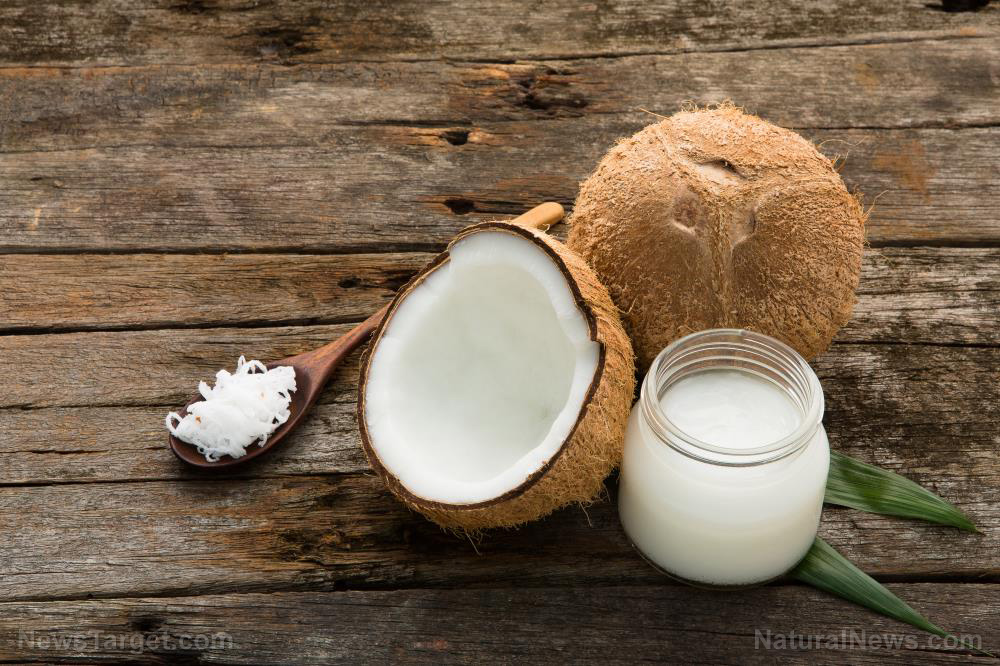Naturally prevent conditions like diabetes, heart disease and stroke with vitamin D and hormone support
01/27/2020 / By Darnel Fernandez

Years of research have established a positive collaboration between estrogen and vitamin D to improve bone health. Now, recent research suggests that this dynamic duo could also play a role in staving off metabolic syndrome in postmenopausal women.
Metabolic syndrome is described as a cluster of conditions – such as obesity, high blood sugar and high blood pressure – that could increase the risk of chronic illnesses like heart disease, Type 2 diabetes and stroke. This condition has grown to be a major public concern, afflicting 30 to 60 percent of postmenopausal women worldwide.
A published in the journal Menopause found that vitamin D and estrogen deficiency has a “synergistic role” in metabolic syndrome. As women age, the risk factors that lead to metabolic syndrome increase significantly. Researchers associate this trend with estrogen loss in postmenopausal women. On the other hand, vitamin D deficiency has been associated with several markers for metabolic syndrome. According to the researchers, supplementation of vitamin D can reduce the risk of metabolic syndrome over a 20-year follow up.
Improve your health with vitamins and hormones
Researchers from China investigated the association between estradiol and vitamin D with metabolic syndrome in Chinese postmenopausal women. Because of the synergistic nature of estrogen and vitamin D in improving bone health, they hypothesized that the same interaction might be able to affect metabolic syndrome as well.
The researchers recruited 616 postmenopausal women aged 49 to 86 who were not taking any estrogen and vitamin D supplements at the start of the data collection. At the end of the trial, the researchers measured the women’s blood levels of estradiol – which is considered the strongest of the estrogen hormones in the body – and vitamin D. They also measured the risk factors of metabolic syndrome.
From the results of their analysis, the researchers found that there is definitely a “positive correlation” between vitamin D and estradiol. This means that women with low levels of estradiol also had low levels of vitamin D and women with higher levels of vitamin D enjoyed higher levels of estradiol as well. The researchers also noted that higher levels of vitamin D was associated with favorable lipid profiles, glucose levels and blood pressures. On the other hand, estradiol was negatively associated with triglycerides, cholesterol and blood pressure.
In sum, their findings establish a synergistic role of vitamin D and estradiol deficiency in developing metabolic syndrome.
Preventing metabolic syndrome with diet
The American Heart Association estimates that almost 23 percent of adults in the US are afflicted with metabolic syndrome. Thankfully, there are certain lifestyle changes you can make to reduce your risk of developing metabolic syndrome. Experts recommend making dietary changes and doing regular exercise as preventive measures against metabolic syndrome. Here are some foods that can help:
- Food rich in omega-3 fatty acids — With high blood pressure as one of the primary conditions encompassed by metabolic syndrome, consuming more omega-3-rich foods can help protect your heart. Research shows that participants who consume batches of omega-3s could enjoy an average decrease in overall blood pressure compared to participants who took a placebo. These omega-3s are also known to increase HDL or “good” cholesterol levels, allowing for improved heart function and reducing your risk of developing cardiovascular disease. Foods rich in omega-3 include fatty fish like salmon and tuna, avocados, almonds and olive oil. (Related: Nuts and berries fight metabolic syndrome.)
- Food rich in dietary fiber — Increasing consumption of dietary fiber can lower your risk of heart disease by reducing LDL or “bad” cholesterol. This clears up the blood vessels to allow proper blood flow, which can improve overall heart function. Fiber is also known to work wonders on gut health, preventing certain cancers and reducing your risk of diabetes. Fibrous foods include brown rice, lentils, oats and various fresh and frozen fruit.
For similar stories on how to combat metabolic syndrome and other diseases, visit Prevention.news.
Sources include:
Tagged Under: cardiovascular health, dietary fiber, estradiol, estrogen, fightobesity, heart health, hormones, metabolic syndrome, obesity, omega-3 fatty acids, supplements, triglycerides, vitamin D deficiency
RECENT NEWS & ARTICLES
FoodCures.News is a fact-based public education website published by Food Cures News Features, LLC.
All content copyright © 2018 by Food Cures News Features, LLC.
Contact Us with Tips or Corrections
All trademarks, registered trademarks and servicemarks mentioned on this site are the property of their respective owners.



















